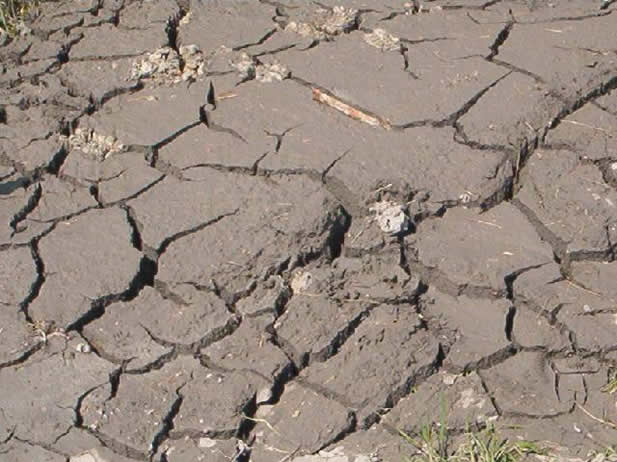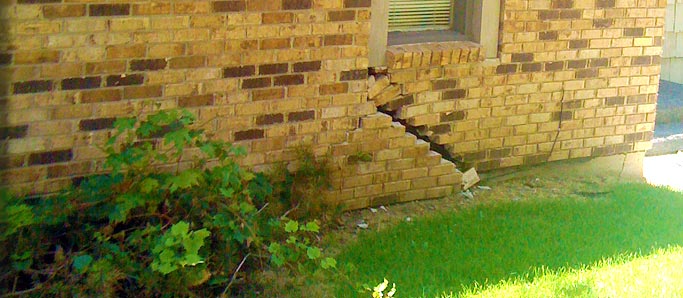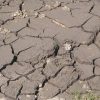
The hidden force behind basement and foundation problems in Dallas is expansive soil and expansive clay.
What is an “Expansive Soil”?
Expansive soils contain minerals such as smectite clays that are capable of absorbing water. When they absorb water they increase in volume. The more water they absorb the more their volume increases. Expansions of ten percent or more are not uncommon. This change in volume can exert enough force on a building or other structure to cause damage.
Cracked foundations, floors and basement walls are typical types of damage done by swelling soils. Damage to the upper floors of the building can occur when motion in the structure is significant.
Expansive soils will also shrink when they dry out. This shrinkage can remove support from buildings or other structures and result in damaging subsidence. Fissures in the soil can also develop. These fissures can facilitate the deep penetration of water when moist conditions or runoff occurs. This produces a cycle of shrinkage and swelling that places repetitive stress on structures.
How Many Buildings are at Risk?
Expansive soils are present throughout the world and are known in every US state. Every year they cause billions of dollars in damage. The American Society of Civil Engineers estimates that 1/4 of all homes in the United States have some damage caused by expansive soils. In a typical year in the United States they cause a greater financial loss to property owners than earthquakes, floods, hurricanes and tornadoes combined.
Even though expansive soils cause enormous amounts of damage most people have never heard of them. This is because their damage is done slowly and can not be attributed to a specific event. The damage done by expansive soils is then attributed to poor construction practices or a misconception that all buildings experience this type of damage as they age.
Why Do These Soils Expand?
Soils are composed of a variety of materials, most of which do not expand in the presence of moisture. However, a number of clay minerals are expansive. These include: smectite, bentonite, montmorillonite, beidellite, vermiculite, attapulgite, nontronite, illite and chlorite. There are also some sulfate salts that will expand with changes in temperature. When a soil contains a large amount of expansive minerals it has the potential of significant expansion. When the soil contains very little expansive minerals it has little expansive potential.
Changes in Moisture Content Trigger Damage
When expansive soils are present they will generally not cause a problem if their water content remains constant. The situation where greatest damage occurs is when there are significant or repeated moisture content changes.
The Bottom Line
It is possible to build successfully and safely on expansive soils if stable moisture content can be maintained or if the building can be insulated from any soil volume change that occurs.
Read more here.




